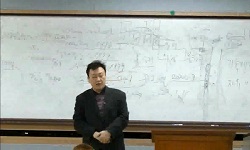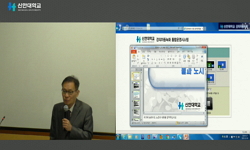Taisho Japan transformed into a full-blown modern society through the World War I. With rapid industrialization grew urban sectors and urban culture and lives had deep impact on the lives of the ordinary people. Among those affected were housewives. A...
http://chineseinput.net/에서 pinyin(병음)방식으로 중국어를 변환할 수 있습니다.
변환된 중국어를 복사하여 사용하시면 됩니다.
- 中文 을 입력하시려면 zhongwen을 입력하시고 space를누르시면됩니다.
- 北京 을 입력하시려면 beijing을 입력하시고 space를 누르시면 됩니다.

특집(特輯) : 20세기 초 동아시아 모던문화와 근대체험: 도시대중과 일상생활 ; 다이쇼기 일본의 근대적 생활경험과 이상적 여성상 -『주부지우(主婦之友)』를 중심으로- = Taisho Japan`s Modern Experiences and the Image of Ideal Women -With focus on Shufu no tomo-
한글로보기https://www.riss.kr/link?id=A82461556
- 저자
- 발행기관
- 학술지명
- 권호사항
-
발행연도
2010
-
작성언어
Korean
-
주제어
주부지우 ; 다이쇼기 ; 도시화 ; 도시가정 ; 일본주부 ; Shufu no tomo ; the Taisho period ; urbanization ; urban family ; Japan`s housewife
-
KDC
911.005
-
등재정보
KCI등재
-
자료형태
학술저널
-
수록면
1-24(24쪽)
- DOI식별코드
- 제공처
-
0
상세조회 -
0
다운로드
부가정보
다국어 초록 (Multilingual Abstract)
Taisho Japan transformed into a full-blown modern society through the World War I. With rapid industrialization grew urban sectors and urban culture and lives had deep impact on the lives of the ordinary people. Among those affected were housewives. A growing number of women moved into cities as part of nuclear family and came to take the role of house-keeping very different from the traditional one. This article examined how the changes in women`s daily lives in cities affected the images of `ideal women`. In particular, Shufu no tomo was the most influenial media output for those urban house-wives. Articles in that magazine reflect the fact that Taisho Japan`s house-wives faced the task of learning and practicing new house-keeping knowledges and techniques. Shufu no tomo included a variety of informations and articles for house-keeping. One aspect of such articles is to promote the formation of the identity of modern house-wives by providing a new role for them. However, house-wives were obligated to keep the economic health of the family through thrifty managing of the household. They had to take care of family`s economy, children, and even things like fashionable clothing. These women were bound by their dutiful roles as `good house-wives.` In short, the newly formed identity was within the patriarchal notion of `Good Wife, Wise Mother.`
동일학술지(권/호) 다른 논문
-
특집(特輯) : 20세기 초 동아시아 모던문화와 근대체험: 도시대중과 일상생활 ; 일본 근대 소비자의 탄생, 샐러리맨 가정의 생활과 교양
- 이화여자대학교 이화사학연구소
- 김영숙
- 2010
- KCI등재
-
특집(特輯) : 20세기 초 동아시아 모던문화와 근대체험: 도시대중과 일상생활 ; 『신가정(新家庭)』잡지와 1930년대 상하이 "신가정"
- 이화여자대학교 이화사학연구소
- 최은진
- 2010
- KCI등재
-
특집(特輯) : 20세기 초 동아시아 모던문화와 근대체험: 도시대중과 일상생활 ; 상하이화보 속의 헐리우드 영화와 독자대중 -1926-1937년 『량우화보(良友畵報)』를 중심으로-
- 이화여자대학교 이화사학연구소
- 정혜중
- 2010
- KCI등재
-
논문(論文) : 고려시대 궁인(宮人)의 직제(職制)와 생활
- 이화여자대학교 이화사학연구소
- 권순형 ( Soon Hyung Kwon )
- 2010
- KCI등재




 KCI
KCI KISS
KISS






